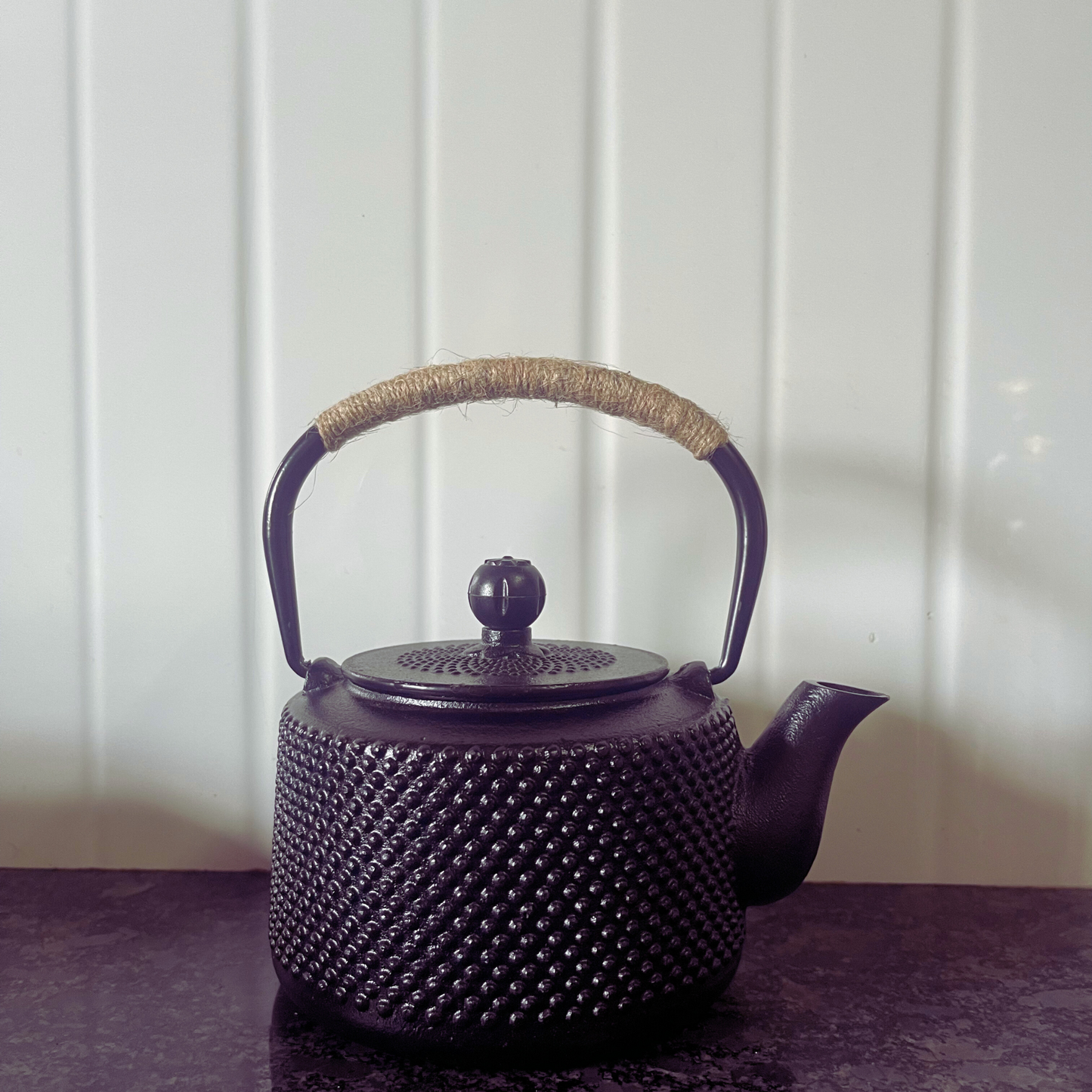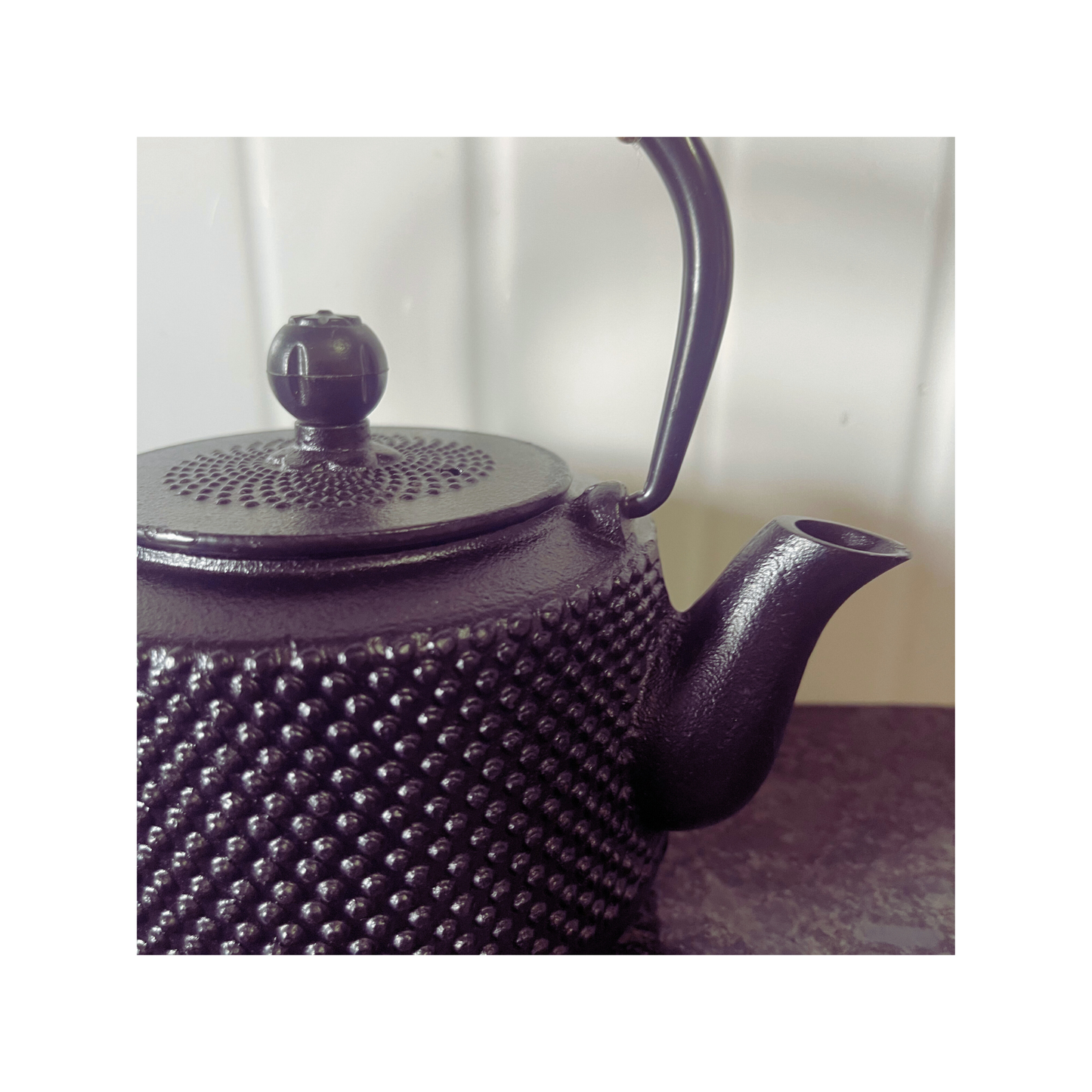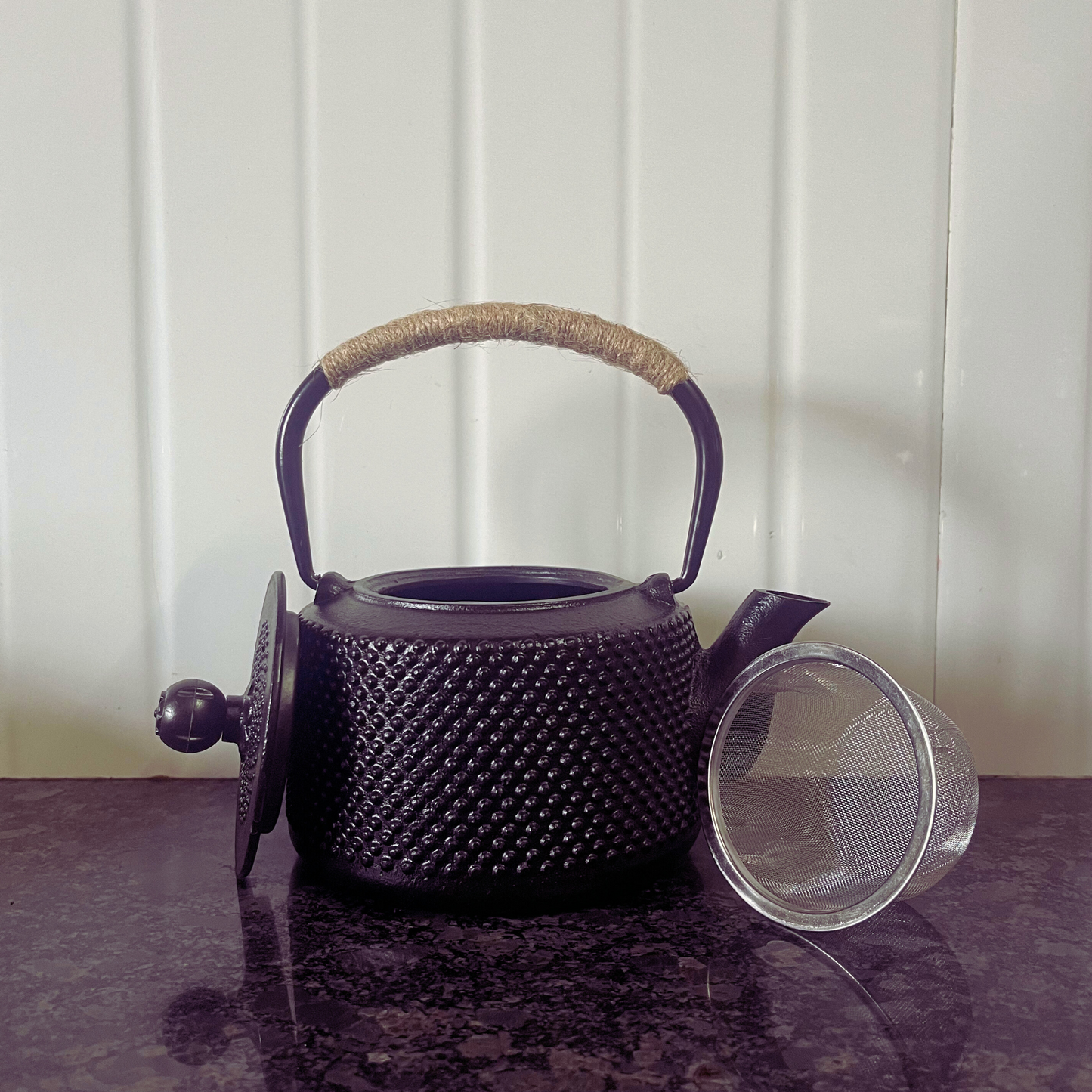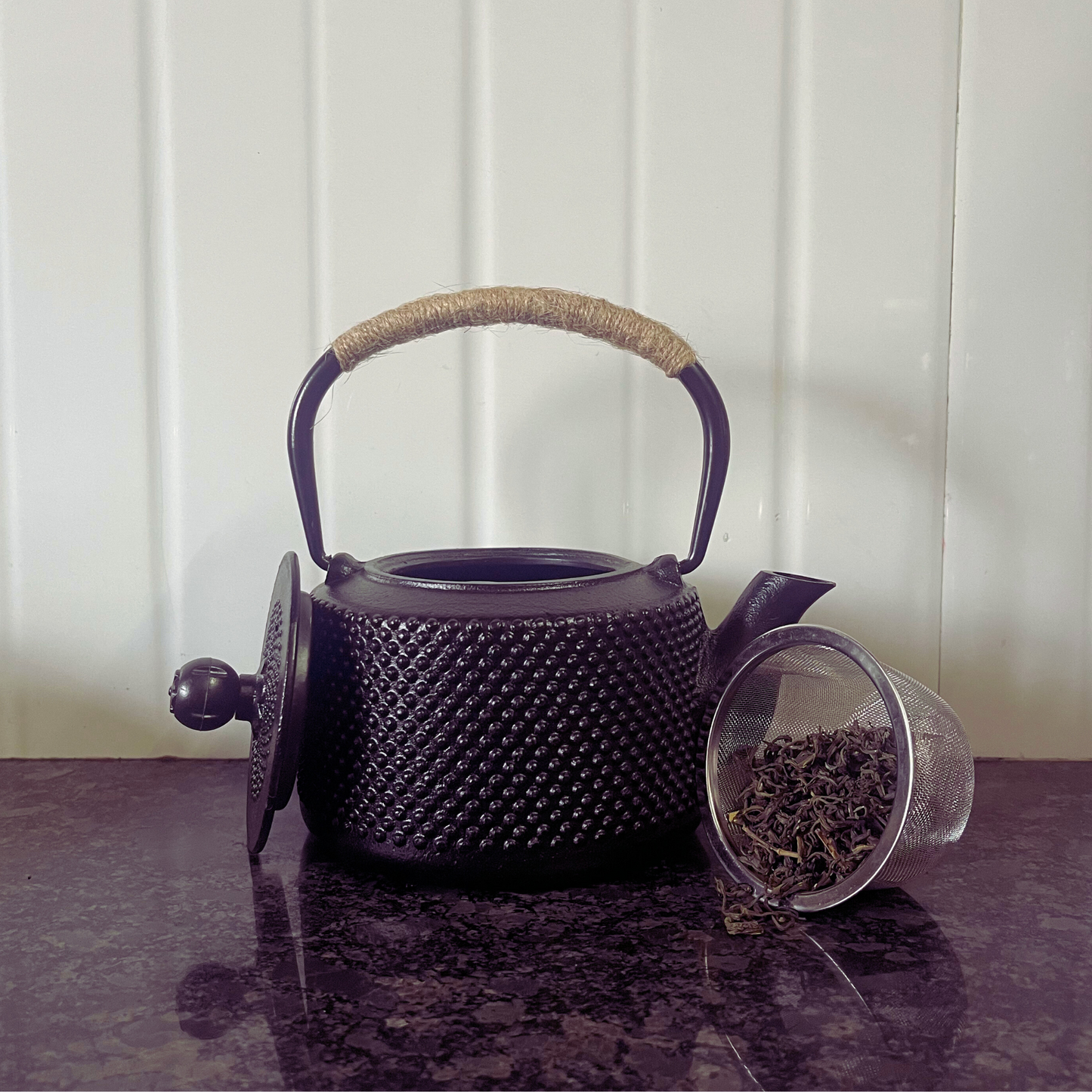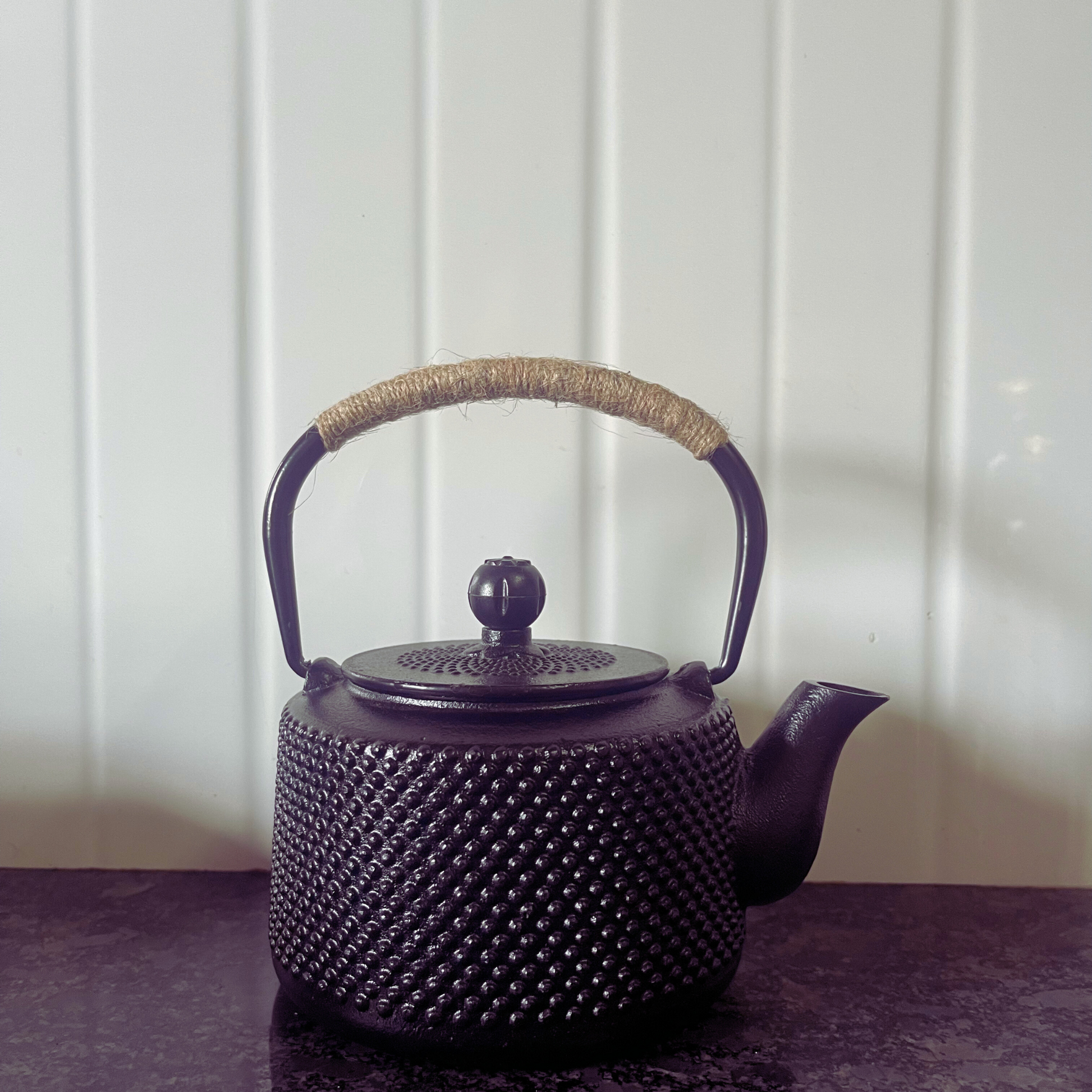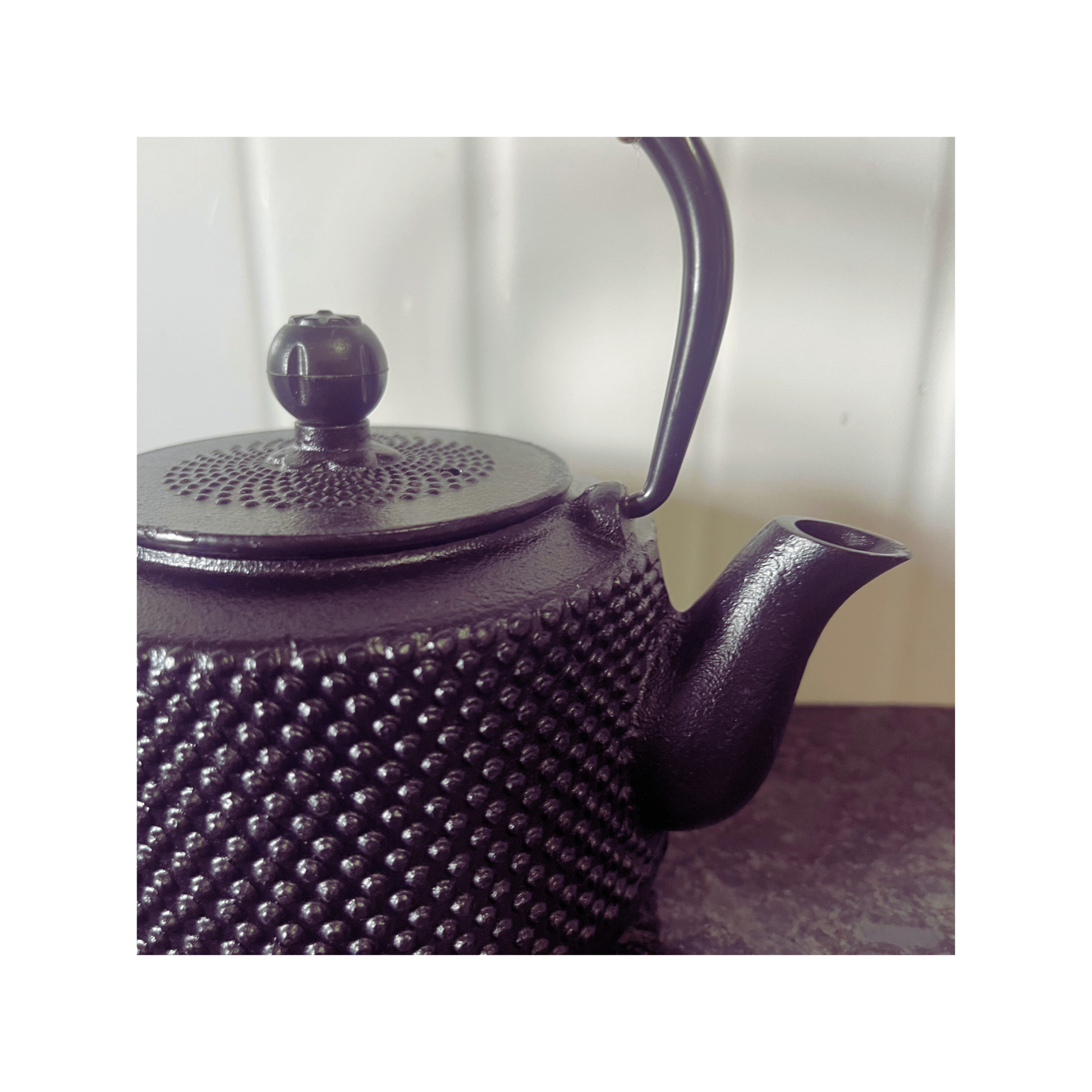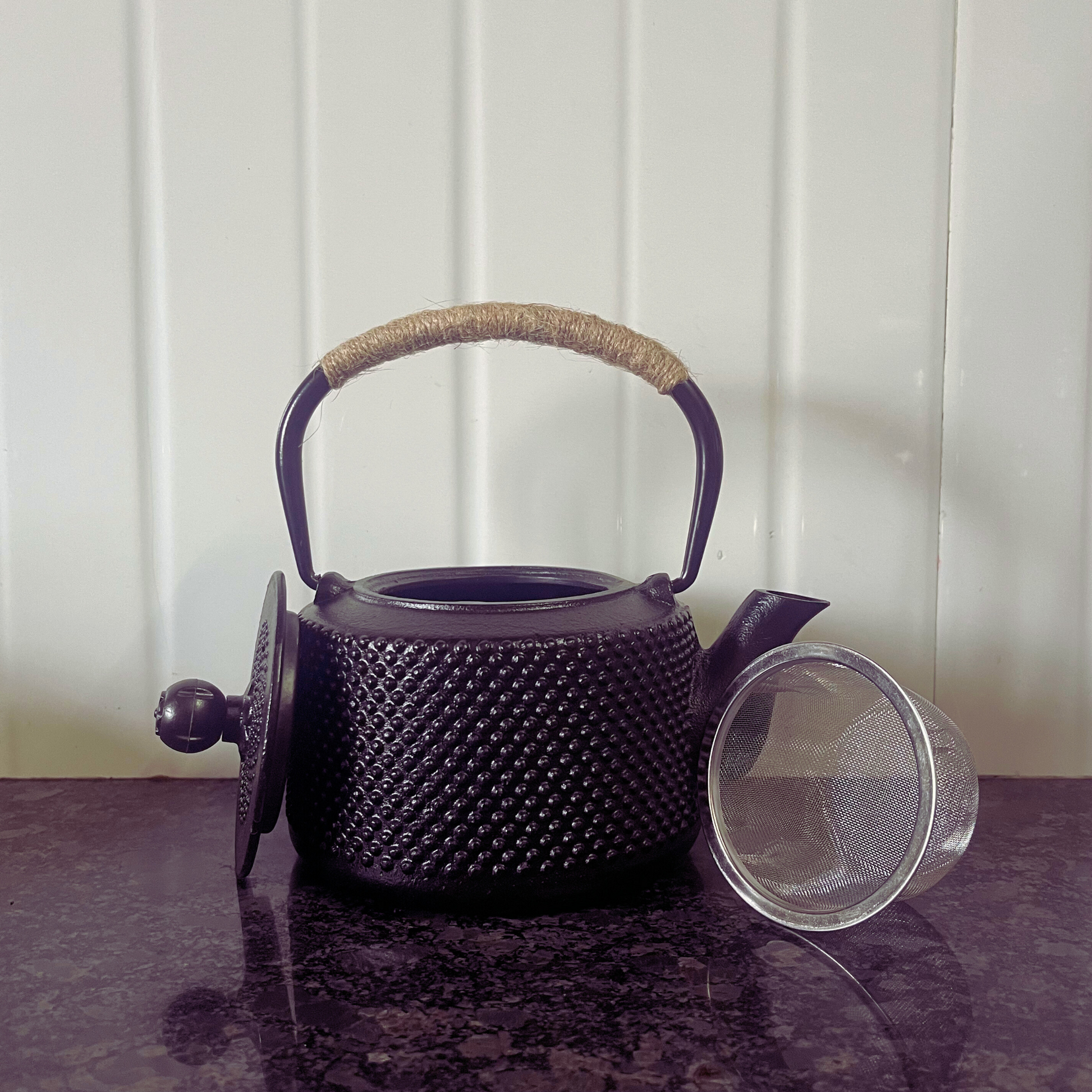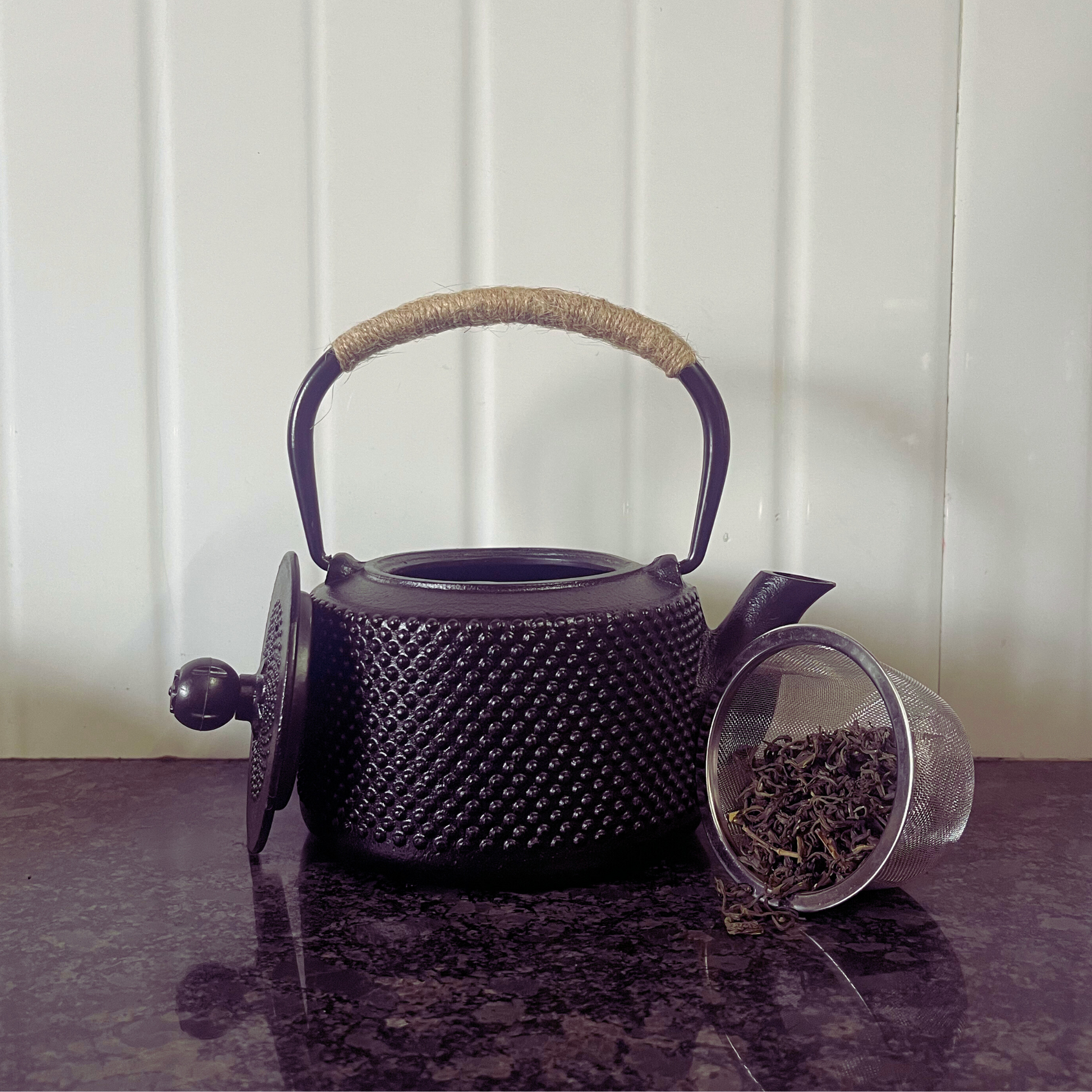Darjeeling Connection
Cast-Iron Hobnail TeaPot - Traditional Japanese Tetsubin (Tetsu-Kyusu) Black Arare patterned (with round hob) TeaPot 580ml
Cast-Iron Hobnail TeaPot - Traditional Japanese Tetsubin (Tetsu-Kyusu) Black Arare patterned (with round hob) TeaPot 580ml
Couldn't load pickup availability
One of the purest ways to brew tea.
This Japanese style cast iron tetsu-kyusu teapot will keep tea hot the longest, making sure you can enjoy your brew without having to reheat.
A cast iron teapot is optimum for tea brewing as it keeps the tea evenly hot. This helps to develop tea flavors throughout the entire pot. The difference will be a fresher cup of tea, closer to the natural flavor of the tea.
A cast iron teapot maintains heat the longest, longer than any other material like glass, ceramic, and stainless steel.
This limited edition cast iron teapot makes a bit more than 2 cups of tea. It includes a stainless steel infuser to hold your tea leaves as they steep. Cool-touch easy-grip handle, a lid, and a pouring spout. Keeps tea warm for a long long time.
Simplistic beauty, high durability.
About the Tetsubin (cast iron kettle) & Tetsukyusu (cast iron teapot):
Most times people call this Tetsu-kyusu teapot a Tetsubin as both the kettles are made of cast iron. The Tetsu-kyusu is often easily confused with the Tetsubin, so here’s the difference between these 2 Japanese traditional kettles:
The Tetsubin was used as early as the 16th century in Japan. It is used to boil water (only) and is an integral part of tea ceremonies. The Tetsubin can be used over any sort of heat source, including electric, gas, wood stove, and campfires.
The Tetsukyusu is also made with cast iron like the Tetsubin, but is glazed with enamel on the inside and comes with a removable tea strainer. This kettle is perfect for brewing tea and is easy to clean. It should not be used over any heat source as this may damage the enamel coating. The enamel helps with easy care, cleaning, and prevents rust and oxidation.
How to Brew Tea in a Cast Iron TeaPot:
- Firstly, rinse your tetsukyusu using hot water. Throw out the water.
(Using hot water ensures the teapot doesn’t borrow the heat from the hot water you will pour into this teapot later; this ensures the tea will stay hot longer).
2. Fill the tea strainer with loose tea leaves without overpacking it. The tea leaves should have enough space to expand. Amount of tea leaves will depend on the number of cups of tea you want to brew.
General rule of thumb is 2-3gm of tea leaves per 200-250ml of water.
3. Pour hot water into the teapot and steep your tea.
4. Remove the strainer with tea leaves once your tea is brewed.
5. Pour your brewed tea into your mug to enjoy.
6. Repeat brews if you wish.
Basic Care Instructions:
- Always empty your tetsubin or tetsukyusu when not in use.
- Rinse it with warm water and pat dry immediately after use with a dry cloth to prevent it from rusting. Invert the pot, infuser, and lid to air dry thoroughly before reassembling. Let it dry in a ventilated place. If storing away, make sure that the inside is dry.
- Do not use any soap or detergent. Do not use an abrasive scrubber
- Please refrain from pouring cold water into a tetsubin or tetsukyusu that has just had hot water in it, or that is still hot. This may cause possible cracking and damage.
- The teapot is not suitable for use in a dishwasher or microwave.
- Do not leave tea or water in the pot overnight.
Features:
- Capacity - 580ml - makes slightly over 2 cups of tea
- Sturdy cast iron body
- Glazed with enamel on the inside
- Comes with a stainless steel strainer basket
- Body dimensions - Length: 17cm / Diameter: 12.5cm / Height: 18cm (with handle)
- Weight: 1390gm
Weight
Weight
Dimensions
Dimensions
6.7 × 4.9 × 7 in (l x b x h)
Materials
Materials
Cast Iron body / Enamel glaze inside / Stainless Steel infuser
Capacity
Capacity
Country of Origin
Country of Origin
India
